Astronomy
-
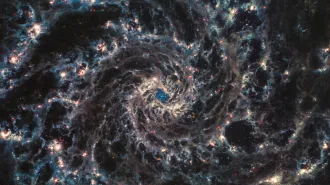 Astronomy
AstronomyNewborn stars sculpt their galaxies in new James Webb telescope images
Dark voids riddle the galaxies’ faces, highlighting previously invisible details about how new stars alter their locales.
-
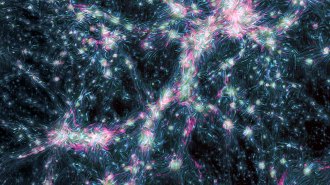 Cosmology
CosmologyAstronomers spotted shock waves shaking the web of the universe for the first time
Studying these elusive shock waves could give scientists a better look at the mysterious magnetic fields that permeate the cosmic web.
By Elise Cutts -
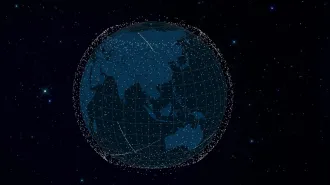 Astronomy
AstronomyHalf of all active satellites are now from SpaceX. Here’s why that may be a problem
Of the roughly 7,300 active satellites in Earth orbit, about 3,600 are part of SpaceX’s growing fleet of Starlink internet satellites.
-
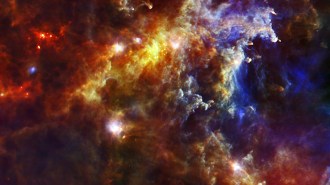 Astronomy
AstronomyThe Milky Way may be spawning many more stars than astronomers had thought
Glowing radioactive debris from massive stars indicates our galaxy mints 10 to 20 new stars a year — double to quadruple the standard number.
By Ken Croswell -
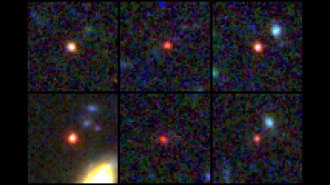 Astronomy
AstronomyThe James Webb telescope found six galaxies that may be too hefty for their age
The galaxies formed in the universe’s first 700 million years and may be up to 100 times more massive than predicted.
-
 Astronomy
AstronomyThe James Webb telescope spotted the earliest known ‘quenched’ galaxy
A galaxy dubbed GS-9209 ceased forming stars more than 12.5 billion years ago after a 200-million-year-long sprint.
-
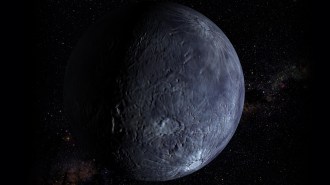 Astronomy
AstronomyThe Kuiper Belt’s dwarf planet Quaoar hosts an impossible ring
Quaoar’s ring lies outside the Roche limit, an imaginary line beyond which rings aren’t thought to be stable.
-
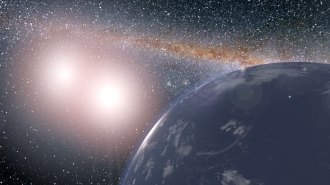 Astronomy
AstronomyLots of Tatooine-like planets around binary stars may be habitable
A new simulation suggests that planets orbiting a pair of stars may be plentiful, and many of those worlds could be suitable for life.
-
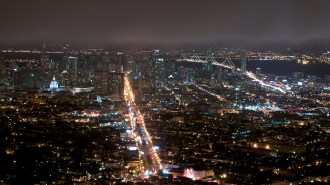 Astronomy
AstronomyNew data show how quickly light pollution is obscuring the night sky
Tens of thousands of observations from citizen scientists spanning a decade show that the night sky is getting about 10 percent brighter every year.
-
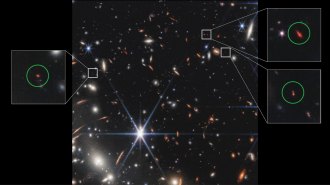 Astronomy
AstronomyThe James Webb telescope found ‘Green Pea’ galaxies in the early universe
The James Webb telescope spotted tiny “green” galaxies that might have helped trigger a dramatic cosmic makeover more than 13 billion years ago.
-
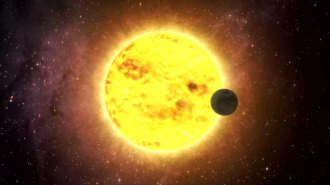 Planetary Science
Planetary ScienceMethylated gases could be an unambiguous indicator of alien life
On Earth, methylated gases are produced by organisms cleaning up their environment — and by little else. The same might be true on some exoplanets.
-
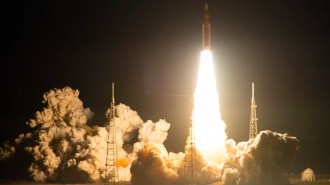 Astronomy
AstronomyThe James Webb Space Telescope wasn’t the only big space news in 2022
DART crashed into an asteroid, Artemis went to the moon and we got a pic of our galaxy’s monstrous black hole. Space was a busy place this year.